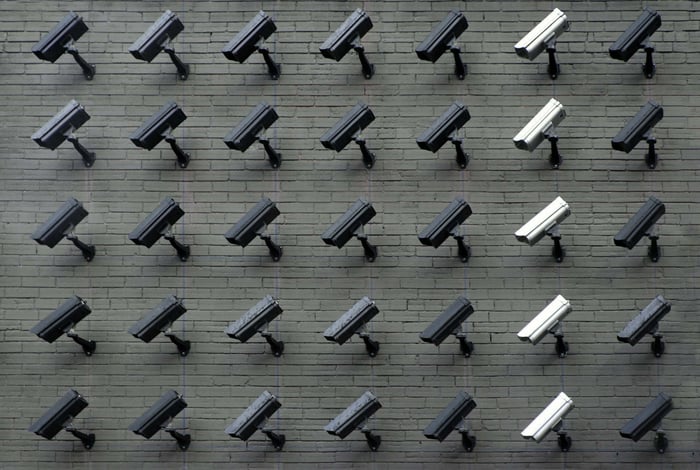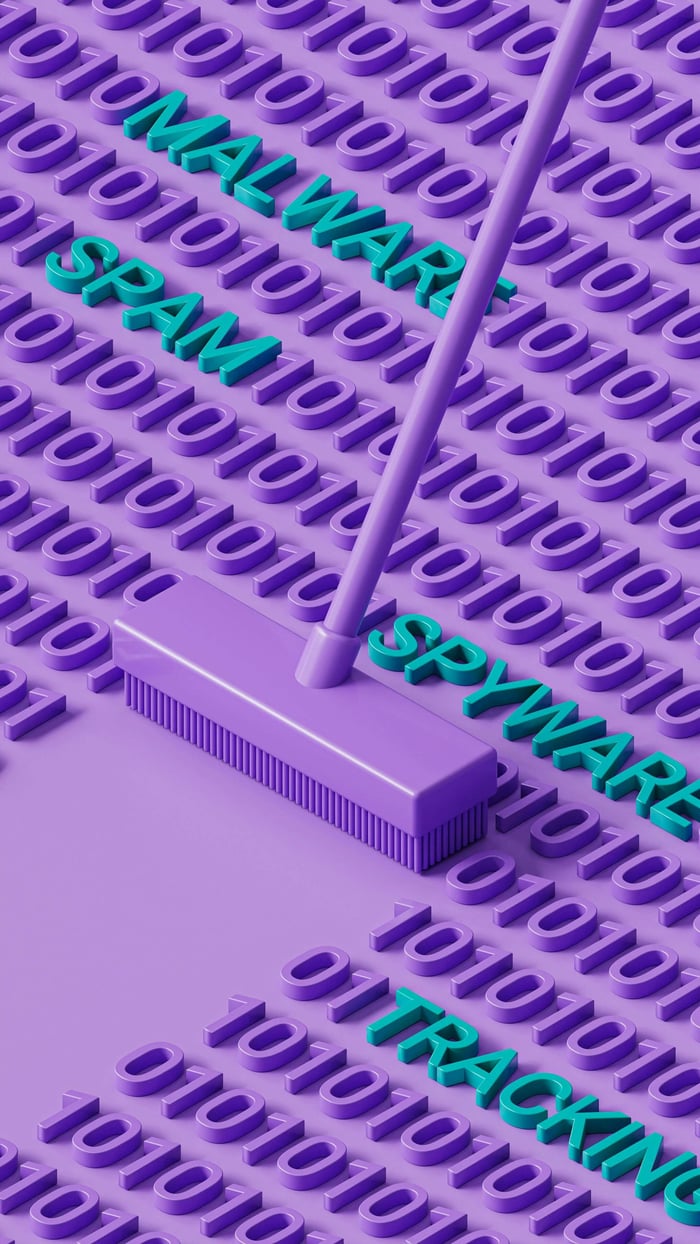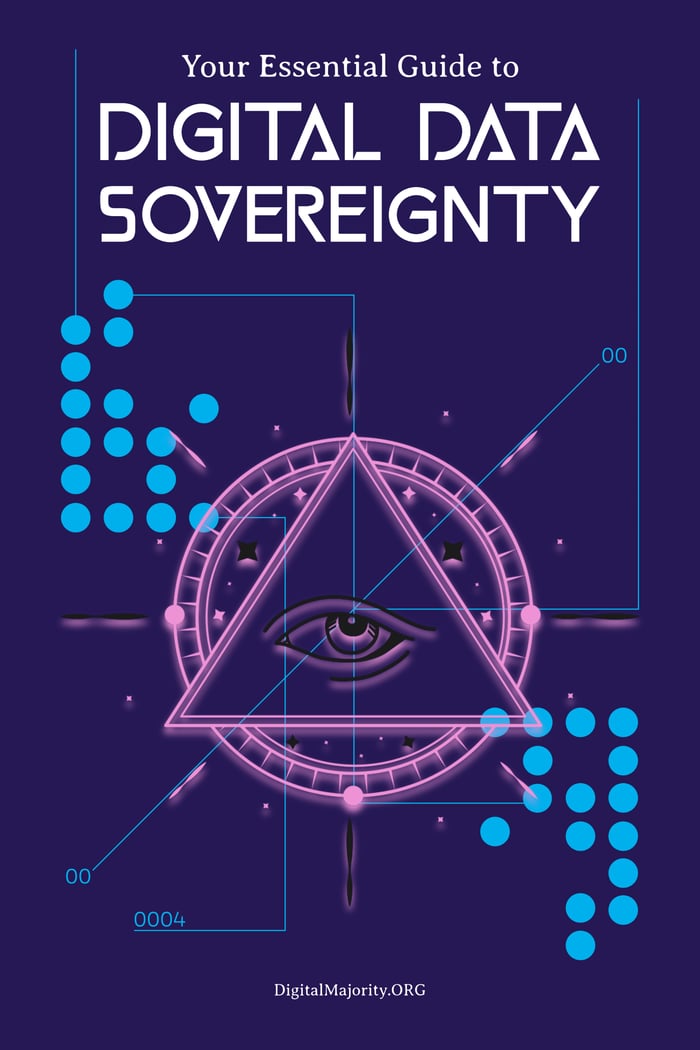
The Biggest Threats to Personal Freedom is Your Data
Table of Contents
The Biggest Threats to Personal Freedom Without Privacy and Data Protection
Imagine living in a world where you’re constantly being watched—every choice, every click, every whisper online. Without personal privacy and robust data protection, this could become your reality. Personal freedom thrives when you have control over your data and your digital interactions. It’s not just about safeguarding information—it’s about preserving your autonomy. That’s where Digital Majority comes in, advocating for your right to self-determination in an increasingly connected world. By understanding the risks, you can take meaningful steps to protect what matters most: your freedom. For practical tools to regain control, explore the Essential Guide to Digital Data Sovereignty.
Understanding Personal Freedom
Personal freedom is more than a buzzword; it’s the bedrock of living authentically and autonomously in today’s interconnected world. But what happens when that freedom becomes compromised? Without personal privacy and robust data protection, personal freedom begins to erode. Let's break this down into its fundamental pillars: the role of personal privacy and the necessity of data protection.

The Role of Personal Privacy
Personal privacy isn’t just about keeping secrets. It’s the quiet assurance that you, and only you, decide what parts of your life are shared with the world. Imagine a home without walls—your every move exposed, your choices judged—unworkable, isn’t it? That’s what your digital life becomes without personal privacy. Privacy empowers you to explore, express, and grow without fear of unsolicited oversight.
When privacy takes a backseat, personal freedom follows suit. Decisions surrounding your lifestyle, interests, and even friendships become influenced by who’s watching. Have you ever hesitated to Google a topic because you feared being tracked? That hesitation is a breach of personal freedom. Safeguarding privacy reclaims control, giving you the autonomy to act genuinely, unclouded by external pressures.
For resources to learn the practical steps towards regaining your privacy, check out the Essential Guide to Digital Data Sovereignty.

Data Protection as a Foundation
If personal privacy is the walls of your digital home, data protection is the lock on the door. Without it, your personal information becomes currency traded by powerful corporations. Data breaches don’t just steal your data; they steal your agency—the ability to make choices without undue influence or harm.
Data protection fortifies personal freedom by ensuring you remain in control of your identity. When companies respect your data, they respect your decisions. Conversely, without protections, your digital shadow could make decisions for you, from what ads you see to what loans you qualify for. Disturbing, right? This underscores why data protection isn’t optional; it’s a requisite for freedom.
For a deeper dive into the importance of safeguarding personal data privacy, consider exploring the article from Integrate.io on "What is Data Privacy?". It explains why data privacy is not merely a technological concern but a fundamental right.
By advocating for data protection and understanding tools like encryption, privacy controls, and ethical platform use, you’re also embracing freedom. Start making those steps today.

Risks of Inadequate Privacy and Data Protection
Your personal freedom hinges on privacy and data protection. Without these safeguards, both your autonomy and trust in digital spaces suffer. Below, explore three critical risks tied to insufficient privacy and weak data defenses.
Surveillance and Control
Imagine living in a home made entirely of glass—every move visible to passers-by. That’s what your digital life becomes under unregulated surveillance. Surveillance erodes personal freedom by shifting the balance of power. When governments or companies watch too closely, they can influence behavior and create a climate of fear.
Unchecked data collection enables powerful entities to control narratives, decision-making, and even movements. It’s like handing someone the keys to your life—who would you trust with them? If privacy is compromised, the freedom to express, dissent, or innovate quietly slips away.
For a deeper dive into privacy risks, read What Is Data Privacy? Top Risks & Best Practices.

Identity Theft and Fraud
Your digital identity is more than just a name and a number. It’s your credit score, your reputation, your livelihood. When companies fail to protect data, it fuels an underground economy of stolen identities. Think about it: one data breach could lead to financial ruin or a tarnished reputation you never agreed to risk.
Imagine waking up to find someone has taken out credit cards in your name or accessed your health records. Sounds scary? It’s a reality for many. An ounce of prevention here—strong passwords, encryption, or privacy tools—beats the heavy cost of recovering from fraud.
Businesses ignoring regulations also face legal and financial consequences. To learn more, check out The 4 Biggest Risks of Non-Compliance With Data Privacy.

Chilling Effects on Expression
Have you ever refrained from speaking your mind because you felt watched? This chilling effect goes hand-in-hand with a lack of privacy. When surveillance looms, people hold back their thoughts and creativity.
Self-expression and innovation thrive on environments where risks are minimal. Without privacy, your online behavior might feel like walking on thin ice, always wary of an unseen audience. It’s the digital equivalent of self-censorship.
For creators and advocates, the right to privacy equals the right to create authentically, uninhibited by judgment or exploitation. Lack of safeguards often muffles these possibilities altogether. As Digital Majority emphasizes, privacy is the bedrock of creativity and freedom.

Digital Majority's Mission
Digital Majority stands as a defender of personal freedom in a digital world that's rapidly losing its sense of privacy. Their mission? Simple yet profound: empower you to reclaim your digital identity while navigating the complexities of data protection and personal rights. Through education and advocacy, Digital Majority ensures your autonomy isn't just a fleeting ideal but a sustainable reality.
Advocacy for Personal Digital Rights
Why does personal privacy matter to you? It’s not just about avoiding creepy ads that somehow know your recent searches. It’s about controlling your narrative, your decisions, and your life. Digital Majority actively campaigns to make personal privacy and data protection a human right—not a luxury.
Their advocacy involves shining a light on how corporations and governments encroach on privacy. From debates over big tech data collection practices to confronting the lack of transparency in digital policies, they're not afraid to address uncomfortable truths. By collaborating with industry experts and public advocates, Digital Majority builds momentum around issues that directly impact your freedom, like surveillance and the misuse of personal data.
If you want to explore how recent laws are shaping the future of privacy, check out this resource from Ogletree.
And this isn’t just about policy; it’s about helping you take charge of your own digital life. Curious about practical tools to safeguard yourself? Digital Majority makes resources easily accessible with guides like the Essential Guide to Digital Data Sovereignty.

Empowerment Through Education
When was the last time you read a privacy policy? Yeah, we didn’t either. That’s exactly where the education arm of Digital Majority shines. They break down complicated topics—like cookies, encryption, and platform permissions—into bite-sized, actionable insights. Why? Because understanding your digital rights shouldn’t require a law degree.
Their education initiatives tackle everything from basic data hygiene to advanced practices like encryption and ethical platform use. Digital Majority believes in preparing everyone, from casual tech users to creators who juggle intellectual property concerns, to stand up for their digital autonomy.
So, what’s in it for you? Knowledge is power. Learn how to strengthen your privacy, recognize secure platforms, and advocate for fair digital interactions. Want a deeper understanding of what’s at stake? Discover insights in Digital Privacy: A Primer for Government.
By making education relatable and accessible, Digital Majority ensures everyone—yes, even your tech-phobic aunt—can feel confident in their online interactions. Whether it’s how to encrypt emails or understanding platform data-sharing practices, they’ve got you covered.

Engaging with Advocacy Groups
Protecting personal freedom isn’t something you need to tackle alone. Organizations like Digital Majority work tirelessly to advocate for digital rights and create impactful change. Their mission aligns with yours: reclaiming personal freedom through better privacy and data protection practices.
Why join advocacy groups?
- Amplify Your Voice: Advocacy organizations elevate concerns by rallying community efforts and pressuring decision-makers.
- Access Resources: Groups like Digital Majority provide educational materials, including guides to personal data sovereignty. These tools demystify privacy protection and empower you to act immediately.
- Shape Policy: By aligning yourself with these groups, you contribute to reforms in policies that prioritize individual privacy.
You can also explore advocacy tools and strategies offered by other organizations like Privacy Guides, where tools and expert insights are curated to help users like you. Advocacy is not just about fighting for rights—it’s about learning, sharing, and creating a collective movement towards a freer, safer digital experience.
How Can You Help?
You might be wondering, amid all the risks and challenges, "What can I actually do to make a difference?" The truth is, you hold more power than you realize. By taking intentional steps and becoming a part of a larger movement, you can actively contribute to protecting personal privacy and data protection for yourself and others. Let’s explore how your actions can add up to a meaningful impact.
Educate Yourself and Others
Awareness is the first step to action. Understanding how personal privacy and data protection are interconnected with personal freedom can change how you approach your digital habits. Think of it like learning to read food labels—once you understand what’s in your “digital diet,” you'll make healthier choices.
Start by familiarizing yourself with key privacy principles. For example, learn how companies collect, track, and share your data. Share this knowledge with friends and family. It’s like passing along a recipe; the more people know the ingredients, the better decisions they make. Resources like 101 Data Protection Tips can give you actionable insights.
Consider setting up mini-workshops for your community or office. Advocacy begins with a conversation, and even a basic discussion, like creating stronger passwords, can lead to significant benefits for everyone involved.
Advocate for Stronger Policies
Changing digital norms starts with influencing the rules of the game. You can support organizations advocating for stricter privacy and data protection laws. This isn't limited to writing letters to representatives—although that helps! Engaging with petitions or joining community awareness events also amplifies your voice.
Want to take it a step further? Support legislation that holds companies accountable for data misuse. Protecting Personal Privacy dives deeper into how entities push for policy changes at federal levels. When public sentiment demands better practices, lawmakers are more likely to act.
Additionally, support platforms like Digital Majority, as they advocate for comprehensive frameworks to empower individuals in reclaiming their digital rights.
Donate to Digital Majority
Your support would allow us to invest in resources to research for better privacy-oriented tools, go into deeper investigation about the type of risks around us, and be your advocate at the broader government data sovereignty discucssion.
Conclusion
When personal privacy and data protection are compromised, personal freedom isn’t far behind. Surveillance fosters a climate of fear, limiting your ability to think, act, and express freely. Identity theft and data mismanagement can reduce your control over your own life, leaving critical decisions in the hands of others.
The stakes go beyond individual harm—they impact innovation, democracy, and human expression. Protecting your data is how you protect your autonomy, your creativity, and your digital citizenship.
Take the first step toward reclaiming your freedom by exploring tools and resources like the Essential Guide to Digital Data Sovereignty. Remember, safeguarding personal freedom starts with you.